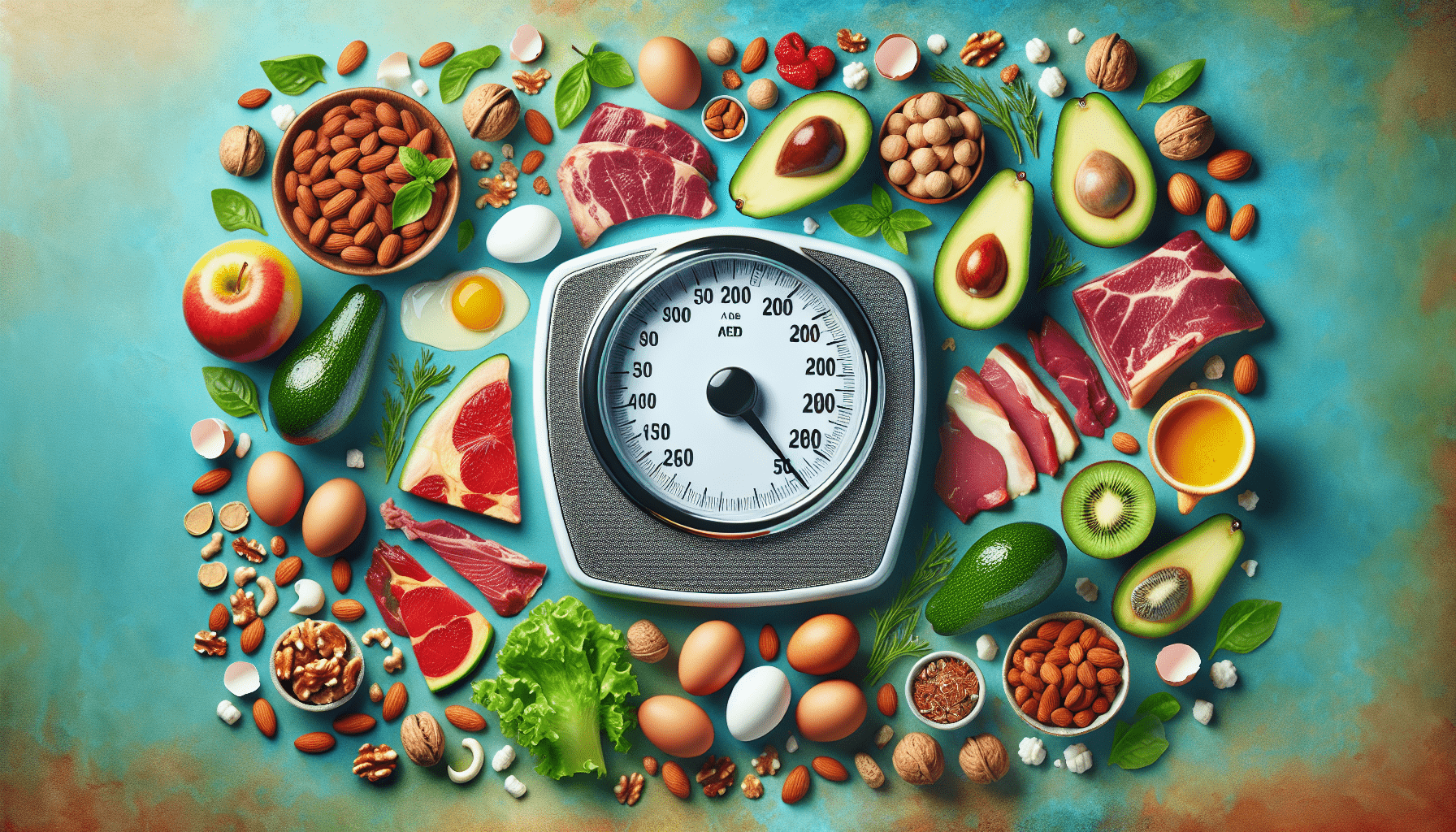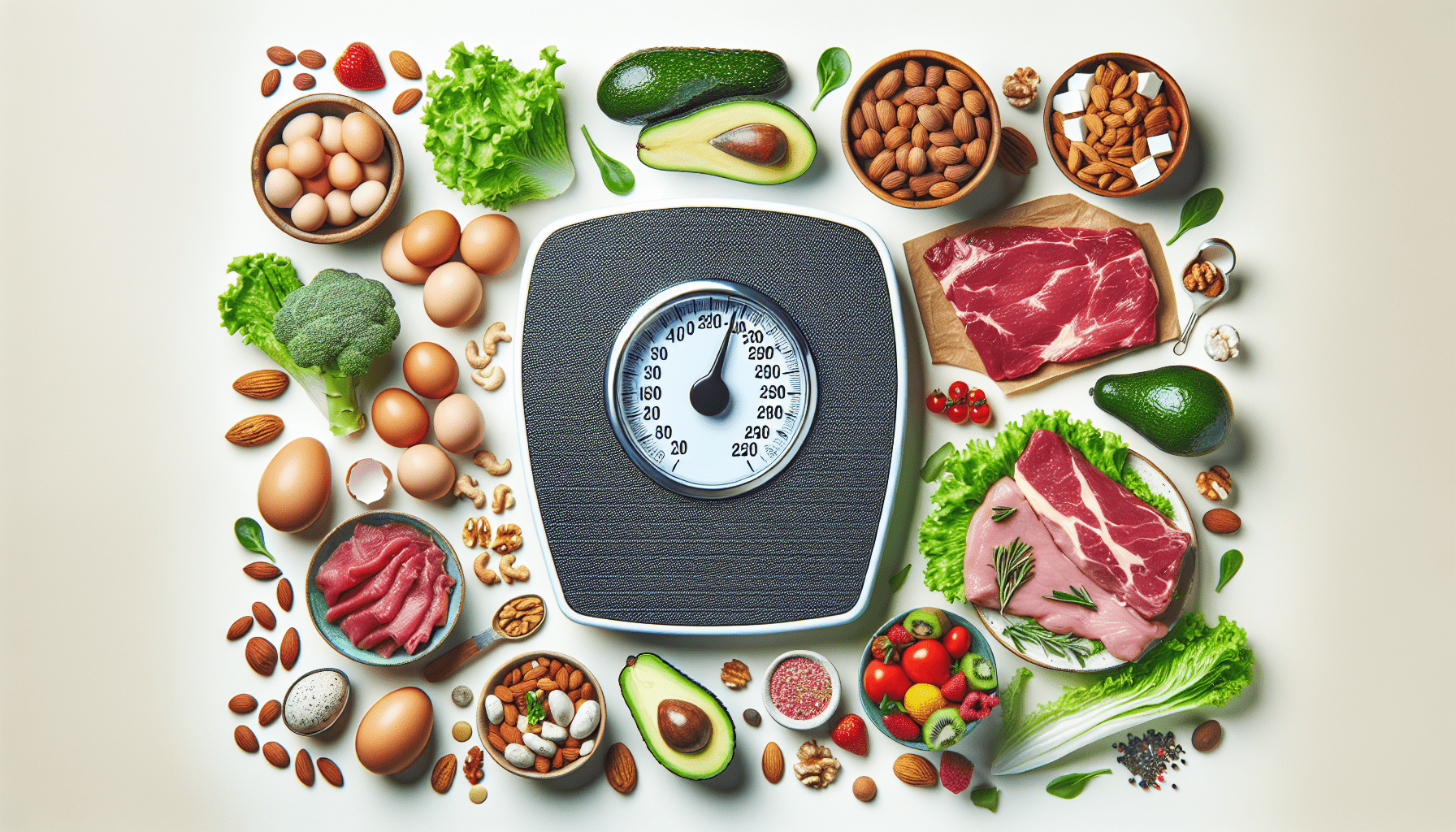Have you ever wondered how much weight you can lose in just one week on the keto diet? You’re not alone. Many people are curious about the potential benefits and results of adopting this fat-burning lifestyle, especially when it involves keto supplements that promise to rev up your energy levels while helping you shed those stubborn pounds.
Understanding the Keto Diet
The ketogenic diet (commonly known as keto) is a low-carb, high-fat dietary regimen. By significantly reducing carbohydrate intake and increasing fat consumption, your body transitions from using glucose as its primary energy source to burning fat for fuel. This metabolic state, called ketosis, is where the magic happens.
Science Behind Ketosis
In ketosis, your liver produces ketones from fat, which become an alternative energy source for your body. This approach forces your body to become more efficient at burning fat for energy, rather than relying on glycogen stores. The science here is pretty fascinating: by manipulating your body’s natural processes, you can potentially tap into a more efficient fat-burning mechanism.
The Role of Keto Supplements
Keto supplements, like exogenous ketones, MCT oil, and electrolyte powders, can support your journey by providing an added boost. These supplements can help ease the transition into ketosis and maintain your energy levels, making the process smoother and more effective.
Exogenous Ketones
Exogenous ketones are external sources of ketones. They can help jump-start ketosis, making it easier for your body to switch to fat-burning mode. These supplements can be particularly beneficial during the initial phase of the diet when your body is still adapting.
MCT Oil
Medium-chain triglycerides (MCTs) are fats that are quickly absorbed and converted into ketones, offering a rapid source of energy. Adding MCT oil to your diet can provide an immediate ketone boost, essential for maintaining high energy levels.
Electrolyte Powders
Electrolyte imbalance is a common issue when starting keto, often leading to the so-called “keto flu.” Using electrolyte powders can help replenish vital minerals like sodium, potassium, and magnesium, mitigating side effects and keeping you feeling well.

How Much Weight Can You Lose in One Week?
The question on everyone’s mind: How much weight can you realistically expect to lose in one week on the keto diet? This largely depends on several factors, including your starting weight, metabolic rate, and adherence to the diet. However, many people report significant losses in the first week as their bodies shed excess water weight.
Factors Affecting Weight Loss
- Starting Weight: Those with a higher starting weight may experience larger drops initially.
- Metabolism: Individuals with faster metabolisms often see quicker results.
- Dietary Adherence: Sticking strictly to the keto guidelines will yield better outcomes.
Typical Weight Loss Ranges
Let’s break down typical weight loss ranges observed by many keto dieters in their first week:
| Starting Weight | Approximate Weight Loss in 1 Week |
|---|---|
| Under 150 lbs | 1-3 lbs |
| 150-200 lbs | 2-5 lbs |
| Over 200 lbs | 3-7 lbs |
Water Weight vs. Fat Loss
It’s essential to recognize that much of the initial weight loss on keto comes from water weight. When you reduce carb intake, your body depletes glycogen stores, which are bound to water. As these stores are used, the water they hold is also released, resulting in rapid weight loss. Actual fat loss typically begins to pick up after the first few days as your body adapts to ketosis.
Week One: What To Expect
The first week of keto can be both promising and challenging. By knowing what to expect, you’ll be better prepared to handle any difficulties.
The First Few Days
Initially, you might feel a bit sluggish as your body transitions from burning carbs to fat. This is normal and usually passes within a few days. Ensuring you stay hydrated and replenish electrolytes can make a significant difference.
Appetite and Cravings
You may experience a reduction in appetite due to the satiating nature of fats. Cravings for sugary foods might persist, but they often diminish as you continue with the diet.

Daily Routine: Sample Day on Keto
To give you a clearer picture, here’s a sample day of meals and snacks that align with keto principles:
Breakfast:
- Scrambled eggs with spinach and feta
- MCT oil in black coffee
Lunch:
- Grilled chicken salad with mixed greens, avocado, and olive oil dressing
Snack:
- A handful of almonds and a small piece of cheese
Dinner:
- Baked salmon with asparagus and buttered cauliflower mash
Evening Snack:
- Greek yogurt with a sprinkle of chia seeds and a few raspberries
Tracking Your Progress
Consistency is key in any weight loss journey. Keeping track of your food intake, physical activity, and overall well-being can help you stay motivated and make necessary adjustments. Consider using:
- Food diary apps for logging meals
- Fitness trackers to monitor physical activity
- Weekly weigh-ins to observe trends (but avoid daily weigh-ins to prevent discouragement from natural fluctuations)
Common Challenges and Solutions
Adopting a keto lifestyle isn’t without its hurdles. Here are a few common challenges and practical solutions to help you overcome them.
Keto Flu
This group of symptoms (headache, fatigue, nausea) occurs as your body adapts. Combat this by drinking plenty of water, replenishing electrolytes, and getting adequate rest.
Social Situations
Navigating social events on keto can be tricky, especially with carb-heavy offerings. Plan ahead by eating before you go, bringing keto-friendly snacks, or even hosting with your keto dishes.
Cravings and Temptations
Sugar and carb cravings can be intense initially. Combat these by keeping your diet varied, indulging in keto-friendly sweets, and staying busy to distract yourself from thoughts of food.
Plateau Periods
If progress slows, don’t panic. Plateaus are common, and you may need to reassess your calorie intake, adjust your macros, or increase your physical activity levels.
Exercise and Keto
Combining keto with regular exercise can enhance your weight loss efforts and improve overall health. Focus on:
Types of Exercises
- Strength Training: Helps preserve muscle mass
- Cardio Workouts: Improves cardiovascular health
- Flexibility and Balance Exercises: Yoga and Pilates for comprehensive fitness
Timing Your Workouts
It’s generally advisable to schedule high-intensity workouts once you’re fully adapted to ketosis. This ensures you have enough energy and reduces the risk of muscle fatigue.
Long-Term Benefits
While significant weight loss in the first week can be motivating, the long-term benefits of a keto lifestyle go beyond the scale. Many people report:
- Improved mental clarity
- Increased energy levels
- Better blood sugar control
- Reduced appetite and cravings
- Sustainable weight management
Should You Try Keto?
Deciding whether the keto diet is right for you depends on your personal health goals and preferences. Like any dietary regimen, it’s crucial to consult with a healthcare provider before starting, especially if you have pre-existing health conditions.
Who Should Avoid Keto?
The keto diet isn’t suitable for everyone, including those with:
- Pancreatic, liver, or thyroid conditions
- Eating disorders
- A history of heart disease without medical consultation
- Pregnant or breastfeeding women without guidance from a healthcare provider
Final Thoughts
Embarking on a keto journey can be both a challenging and rewarding experience. Understanding the mechanics of ketosis, supplementing wisely, and being prepared for the initial hurdles can set you up for success. Remember, weight loss can vary significantly from person to person, so the key is to remain patient and consistent.
There you have it! By setting realistic goals and maintaining dedication, you’re on your way to discovering the unique benefits that a keto lifestyle can offer. Here’s to a healthy, energetic, and successful keto journey for you!





